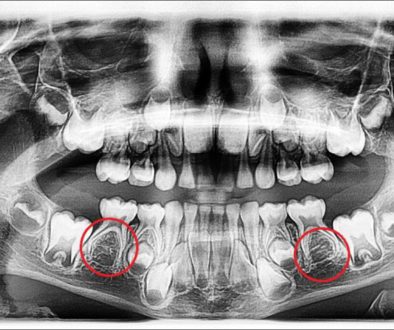The Corners of My Mouth Are Cracked, Red, and Sore!

Most people at one point or another will develop cracked, red and sore areas in the corners of their mouth. This condition is technically known as “angular cheilitis”. These areas will oftentimes bleed when you open your mouth wide, scab over, and then crack again. It can be painful to open your mouth, eat, chew, or speak. Spicy or salty foods tend to irritate the areas even more.
There are several common reasons for developing angular cheilitis…
- Infections – These are most often fungal infections but can sometimes be bacterial. Fungal infections like areas that are moist and warm which the corners of your mouth definitely are.
- Lip licking, thumb sucking, or finger sucking – It is most often kids who do this consistently enough to cause problems but I have seen adults who do this as well. These habits keep the area moist allowing for infection to set in. Some of the enzymes in saliva are also thought to irritate the skin in the area leading to more inflammation.
- Not having any teeth – When you don’t have teeth, your mouth closes more so than before. This overclosure causes saliva to pool in the corners of your mouth, setting up an environment that makes this problem much more likely to happen. Wearing dentures will restore the correct dimensions of your mouth and help this problem to go away.
- Allergy to products such as makeup.
- Vitamin Deficiency – Another common cause is Vitamin B deficiency. If other treatments haven’t been effective, consider taking B vitamins.
Treatment:
In most cases it will resolve pretty quickly with treatment. An anti-fungal cream is the best first step. You can use the same types of creams that are used for athletes foot such as Lotrimin or Lamisil. Hydrocortisone cream will help reduce some of the inflammation. Apply a small amount to the corners of your mouth several times a day. If it doesn’t start feeling better within a couple of days, add some triple antibiotic ointment to the mix. Apply this several times a day as well. Your dentist or physician can also give you a prescription for something similar.



